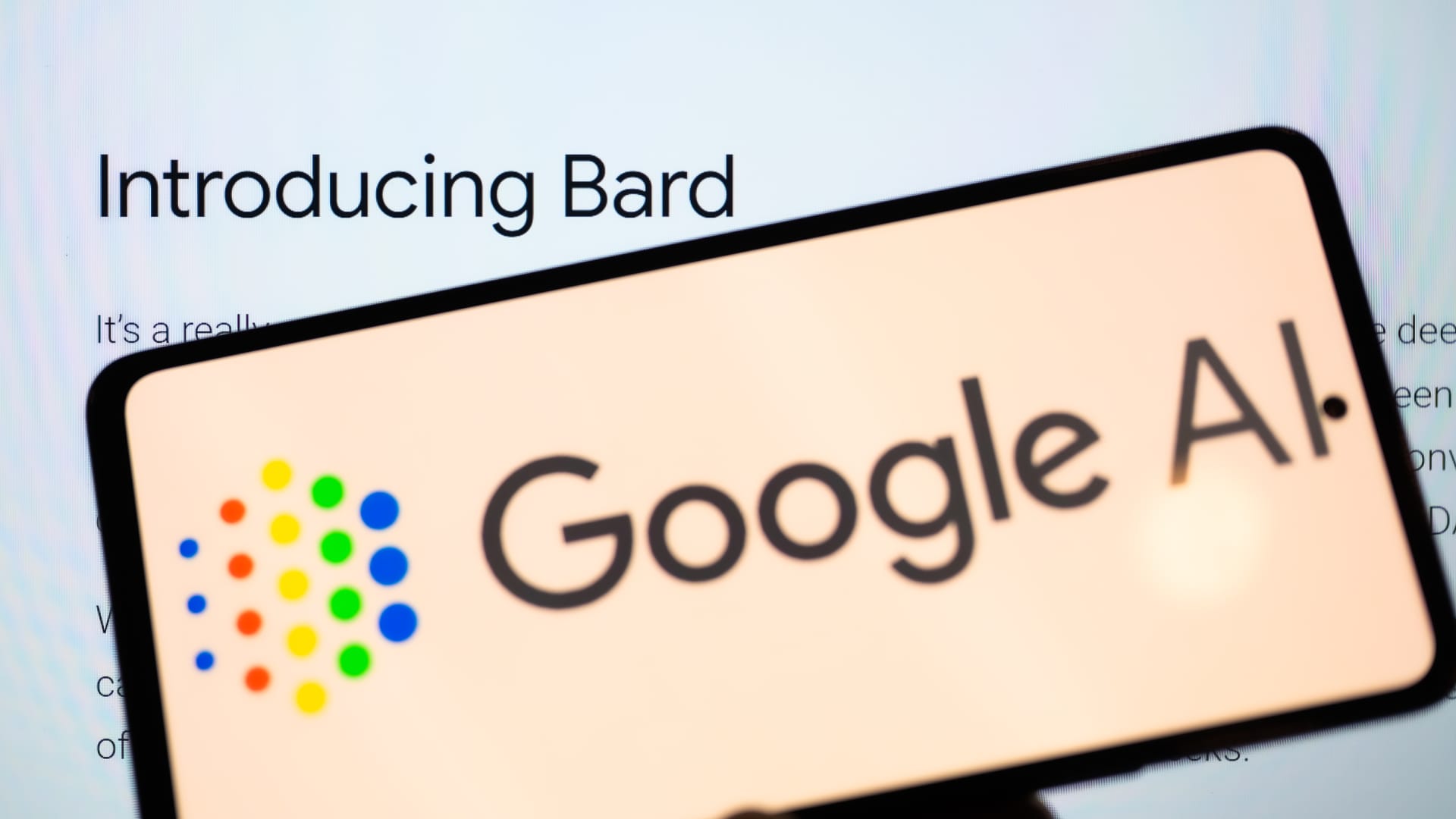
The boom in artificial intelligence is just beginning, with a more than $5.9 trillion AI revenue opportunity ahead across the internet industry, according to Morgan Stanley. The firm expects ramping AI-based innovation to result in new and improved search tools, AI assistants, stronger social and e-commerce recommendation engines, and more. “We see surging and emerging consumer AI adoption driving further increases in digital behavior and more durable multi-year digital revenue and free cash flow growth across the industry,” the team of analysts wrote in a note Thursday. “Indeed, our AI-bull case shows how more rapid digitization could shift an incremental $200bn+ of US spend online over the next 3 years.” The AI craze began taking off last year when OpenAI’s ChatGPT was launched. The software is used by Microsoft , which invested billions into the company, to power updates to its Bing search engine and Edge browser. In February, Google announced its rival chatbot technology, Bard. Google, a subsidiary of Alphabet , is one of several companies Morgan Stanley sees as best positioned to capture the nearly $6 trillion opportunity. The names it identifies could see anywhere from 6% to 38% AI-driven upside to Morgan Stanley’s base-case price targets, the firm said. Here are some of those that made the cut. Alphabet already has about 50% upside to Morgan Stanley’s price target and could see another 12% driven by AI. The firm anticipates continued AI-driven platform-level innovation on search, YouTube and other offerings, and is confident in the company’s long-term growth. “Our sensitivity work shows how AI-based improvements could lead to 10%+ of incremental annual revenue for GOOGL ($50bn+) by ’25,” analysts wrote. Investors were unimpressed when Google unveiled Bard, sending shares 7% lower on the day of the event. Amid criticism of the company’s slow response to ChatGPT, Google CEO Sundar Pichai asked employees to test out Bard and reminded them that some of Google’s most successful products were not the first to market. “I know this moment is uncomfortably exciting, and that’s to be expected: the underlying technology is evolving rapidly with so much potential,” Pichai wrote in a companywide email, which was viewed by CNBC. Alphabet shares are up about 6% year to date. Meanwhile, Amazon will be the biggest beneficiary of AI’s effect on e-commerce, according to Morgan Stanley. The company has nearly 65% upside to Morgan Stanley’s price target and another nearly 9% upside driven by AI. “Our sensitivity work on AMZN shows the upside here, with a faster growing, more profitable e-commerce and public cloud business combining to potentially add ~16%+ (~$8bn) to ’25 EBIT,” the firm said. Amazon is up more than 12% so far this year. Advertising technology company The Trade Desk has 5.5% upside to Morgan Stanley’s price target and another 21.4% AI-driven upside. “We believe that AI could help TTD to build more performant and efficient tools for its DSP [demand side platform] business, improving results for advertisers and driving incremental spend,” the firm wrote. Shares of The Trade Desk have gained 27% year to date. Lastly, Shutterstock has 13.2% upside to Morgan Stanley’s price target and the largest AI-driven upside, at 38%. “We see AI benefitting SSTK as it gains from incremental computer vision revenues at an accretive EBITDA margin while also bringing text-to-image AI capabilities to its platform,” the firm said. The creative platform, which provides products such as licensed photographs, illustrations and videos to marketing agencies and media organizations, reported an earnings and revenue beat for the fourth quarter last month. “Shutterstock has now fully integrated generative AI into our Creative Flow platform across all of our products, sales channels, geographies, and languages, and we have established major AI ecosystem partnerships leveraging our massive content library,” CEO Paul Hennessy said in the earnings announcement . The stock is up 42% so far this year. — CNBC’s Jennifer Elias contributed reporting.
